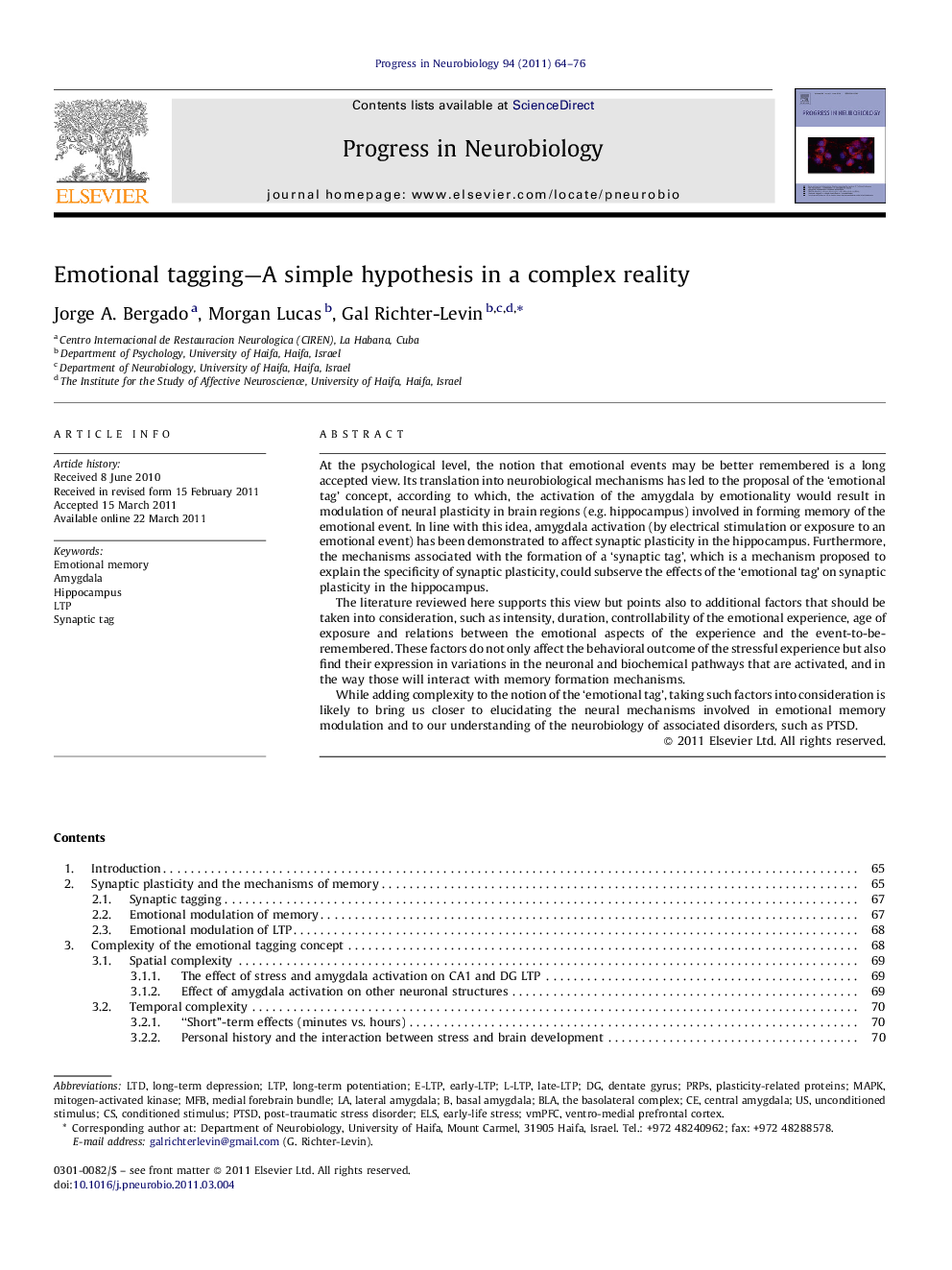| Article ID | Journal | Published Year | Pages | File Type |
|---|---|---|---|---|
| 4353640 | Progress in Neurobiology | 2011 | 13 Pages |
At the psychological level, the notion that emotional events may be better remembered is a long accepted view. Its translation into neurobiological mechanisms has led to the proposal of the ‘emotional tag’ concept, according to which, the activation of the amygdala by emotionality would result in modulation of neural plasticity in brain regions (e.g. hippocampus) involved in forming memory of the emotional event. In line with this idea, amygdala activation (by electrical stimulation or exposure to an emotional event) has been demonstrated to affect synaptic plasticity in the hippocampus. Furthermore, the mechanisms associated with the formation of a ‘synaptic tag’, which is a mechanism proposed to explain the specificity of synaptic plasticity, could subserve the effects of the ‘emotional tag’ on synaptic plasticity in the hippocampus.The literature reviewed here supports this view but points also to additional factors that should be taken into consideration, such as intensity, duration, controllability of the emotional experience, age of exposure and relations between the emotional aspects of the experience and the event-to-be-remembered. These factors do not only affect the behavioral outcome of the stressful experience but also find their expression in variations in the neuronal and biochemical pathways that are activated, and in the way those will interact with memory formation mechanisms.While adding complexity to the notion of the ‘emotional tag’, taking such factors into consideration is likely to bring us closer to elucidating the neural mechanisms involved in emotional memory modulation and to our understanding of the neurobiology of associated disorders, such as PTSD.
► The previously suggested “emotional tag” concept is suggested to be too simple. ► We first briefly review the traditional simple view of the “emotional tag” concept. ► The second part brings a novel insight: a more complex, integrative view is presented. ► This view more accurately describes the impact of emotionality and stress on memory consolidation.
